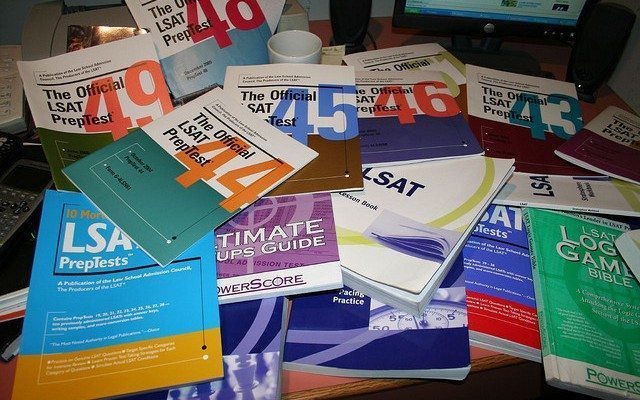 Image courtesy of [Shane S. via Flickr]
Image courtesy of [Shane S. via Flickr]
Schools
Two U.S. Law Schools No Longer Require the LSAT for Admission
About four times a year, students across the country nervously sit for what could be the most important four hours of their lives up until that point. Sure, they’re prepared, but nothing can shake the inevitable nervous feelings that ensue on test day. That nerve-wracking test I’m talking about is the LSAT–the admissions exam for law schools in the United States. Law schools sift through thousands of applications every year. When initially considering an applicant, they mainly look at two things: their undergraduate GPA, and their LSAT score. But what if I were to tell you that one of those criteria was no longer considered?
Well if you were to apply to the State University of New York-Buffalo Law School or the University of Iowa College of Law, that would be the case. Both of these schools have decided to admit students who have not taken the LSAT. Instead, they have stated that they will admit some students based on their undergraduate GPAs and their scores on other standardized tests.
These are just the first two schools to implement such policies, taking advantage of a new ruling by the American Bar Association that now permits law schools to fill up to 10 percent of their law school classes with students who have not taken the LSAT. So long as that student has a strong GPA and strong additional standardized test scores, they can be admitted.
If you’re anything like I am, you’re probably asking yourself “what other standardized test could they possibly use?” Well, believe it or not, these schools will be considering ACT and SAT scores from at least four years earlier for undergraduate admissions. They will also be considering things such as the GRE, GMAT, or college aptitude tests.
The aim of this new policy is to combat declining law school enrollment. These schools believe that if potential applicants do not have to worry about preparing and paying for an additional exam, then they will be more likely to apply. James Gardner, the dean of SUNY Buffalo’s law school, stated that “taking the LSAT is a pain, and it is expensive.” Everyone who takes the test must pay a $170 fee, and that doesn’t take into account the steep costs of tutoring or an LSAT preparation course. According to Gardner, “this is just a way to identify strong-performing students based on perfectly rational criteria that don’t involve the LSAT.”
While this may sound like a great leveler, think about what it actually means. If law schools start to use college admissions exams, like the SAT, for law school admissions, it will only make sure those same obstacles come four years sooner. If a high school student has some sort of inclination that they want to go to law school after college, they have the added pressure of doing well on the SAT for that purpose, four years too soon. I always knew I wanted to go to law school, and let me tell you, I would not have been too excited to find out that my SAT scores counted not only for college, but for law school as well.
The unique thing about the LSAT is that it is a good indicator of how well students will perform in law school. Research shows that LSAT scores are a good predictor of not only how well students will perform in their first year of law school, but also how likely a student is to pass the bar exam. It’s unlikely that law schools will be able to discern the same things about applicants from other standardized tests.
Sure, this new policy may draw some people in that may have been deterred from considering law school if they needed to take the LSAT, diversifying the applicant pool. However, if we consider the research, don’t we want to have some indication that students will succeed in law school before investing three years and hundreds of thousands of dollars in a legal education? Isn’t that the whole point of the LSAT?
While some law schools no longer require all students to take the LSAT for admissions, I for one, will still be one of those nervous students sitting for my exam come June.








Comments